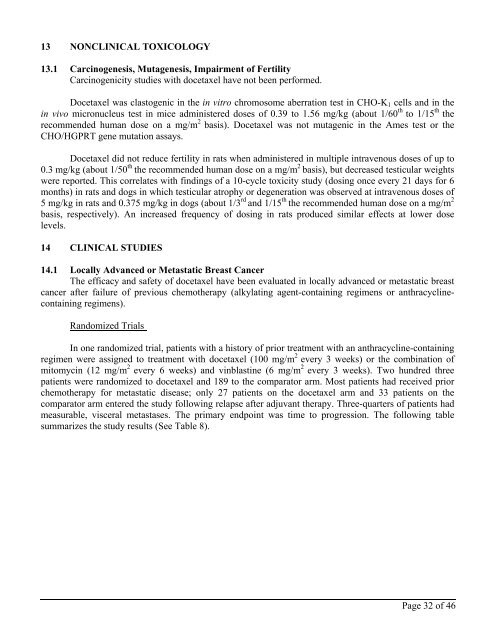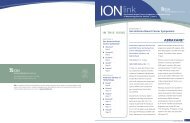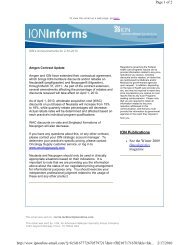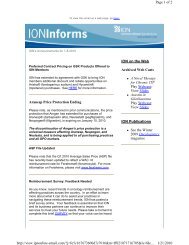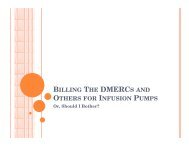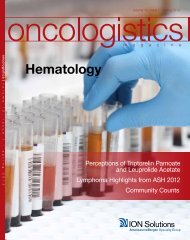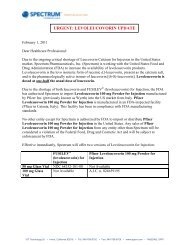Single Vial Docetaxel Injection - ION Solutions
Single Vial Docetaxel Injection - ION Solutions
Single Vial Docetaxel Injection - ION Solutions
You also want an ePaper? Increase the reach of your titles
YUMPU automatically turns print PDFs into web optimized ePapers that Google loves.
13 NONCLINICAL TOXICOLOGY<br />
13.1 Carcinogenesis, Mutagenesis, Impairment of Fertility<br />
Carcinogenicity studies with docetaxel have not been performed.<br />
<strong>Docetaxel</strong> was clastogenic in the in vitro chromosome aberration test in CHO-K 1 cells and in the<br />
in vivo micronucleus test in mice administered doses of 0.39 to 1.56 mg/kg (about 1/60 th to 1/15 th the<br />
recommended human dose on a mg/m 2 basis). <strong>Docetaxel</strong> was not mutagenic in the Ames test or the<br />
CHO/HGPRT gene mutation assays.<br />
<strong>Docetaxel</strong> did not reduce fertility in rats when administered in multiple intravenous doses of up to<br />
0.3 mg/kg (about 1/50 th the recommended human dose on a mg/m 2 basis), but decreased testicular weights<br />
were reported. This correlates with findings of a 10-cycle toxicity study (dosing once every 21 days for 6<br />
months) in rats and dogs in which testicular atrophy or degeneration was observed at intravenous doses of<br />
5 mg/kg in rats and 0.375 mg/kg in dogs (about 1/3 rd and 1/15 th the recommended human dose on a mg/m 2<br />
basis, respectively). An increased frequency of dosing in rats produced similar effects at lower dose<br />
levels.<br />
14 CLINICAL STUDIES<br />
14.1 Locally Advanced or Metastatic Breast Cancer<br />
The efficacy and safety of docetaxel have been evaluated in locally advanced or metastatic breast<br />
cancer after failure of previous chemotherapy (alkylating agent-containing regimens or anthracyclinecontaining<br />
regimens).<br />
Randomized Trials<br />
In one randomized trial, patients with a history of prior treatment with an anthracycline-containing<br />
regimen were assigned to treatment with docetaxel (100 mg/m 2 every 3 weeks) or the combination of<br />
mitomycin (12 mg/m 2 every 6 weeks) and vinblastine (6 mg/m 2 every 3 weeks). Two hundred three<br />
patients were randomized to docetaxel and 189 to the comparator arm. Most patients had received prior<br />
chemotherapy for metastatic disease; only 27 patients on the docetaxel arm and 33 patients on the<br />
comparator arm entered the study following relapse after adjuvant therapy. Three-quarters of patients had<br />
measurable, visceral metastases. The primary endpoint was time to progression. The following table<br />
summarizes the study results (See Table 8).<br />
Page 32 of 46


